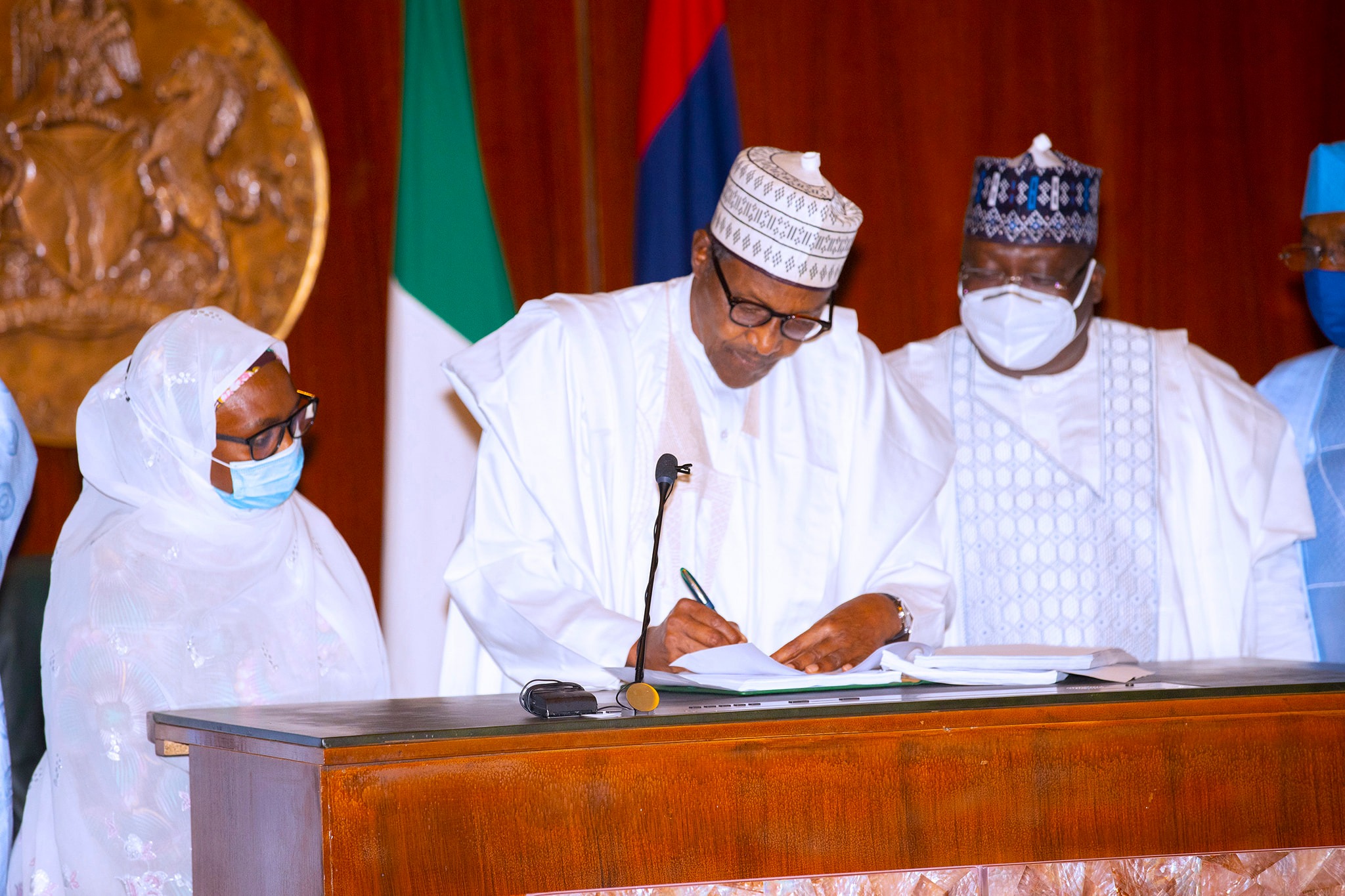The Senate has lauded President Muhammadu Buhari for signing the Electoral Act Amendment Bill 2022 into law.
Chairman Senate Committee on Media and Publicity, Sen. Ajibola Basiru made the commendation in a statement in Abuja on Friday.
He said that the Act was now the legislative framework for the conduct of elections in Nigeria.
Basiru congratulated the ninth Assembly for the innovative provisions in the Electoral Act that addressed obvious lapses that had inhibited credible elections in Nigeria.
He identified the conduct of primaries, campaign expenses, use of technological devices in elections and electronic transmission of results as some of the reforms introduced that would ensure the credibility of elections in the country.
The lawmaker stated that the Senate had taken notice of Section 84(12) of the Act, especially the concerns raised the President and assured Nigerians that the National Assembly would give the section the desired legislative attention.
Similarly, Deputy Senate President Ovie Omo-Agege, said that Buhari had written his name in gold for signing the Bill into Law.
Omo-Agege’s Special Adviser Media and Publicity Mr Yomi Odunuga, stated this in a statement in Abuja on Friday.
Omo- Agege expressed delight that the country would go into the next general election with a new electoral legal framework.
The deputy senate president recalled that although the process under the 8th Senate was fraught with mutual suspicions and bitterness, electoral reform for the ninth National Assembly remained a priority in its legislative agenda.
“The ninth Senate has promised to bequeath a lasting legacy to Nigerians.
“Today’s development adds to the list of historic legislations that have defiled previous Assemblies, which the ninth Senate has passed,” he said.
President Buhari had withheld his assent to the bill in November 2021.
He cited the cost of conducting direct primary elections, security challenges, and possible manipulation of electoral processes by political players as part of the reasons for his decision.
He later gave some conditions to give his assent, an action that prompted the lawmakers to re-work the bill, leading to the emergence of two versions in the Senate and House of Representatives chambers.
The House had re-amended the bill to include the direct and indirect primary options while the Senate re-adjusted it to include the direct, indirect, and consensus modes of selecting political parties’ candidates.
Both chambers later passed the harmonised version on January 25 – the final agreed version of the amendment to Clause 84 which included the direct, indirect, and consensus primary modes.
The harmonised version was received by President Buhari a week later, as confirmed by his Senior Special Assistant on NASS Matters (Senate), Sen. Babajide Omoworare.



Leave a Reply